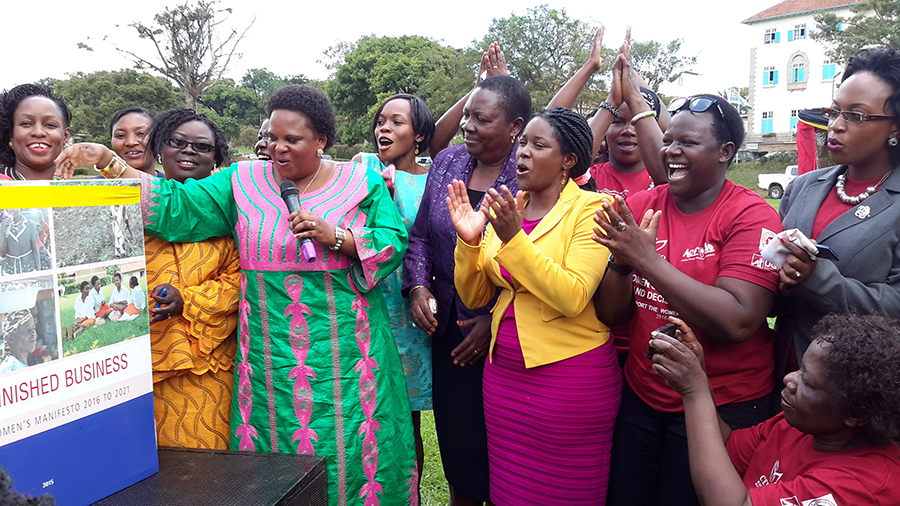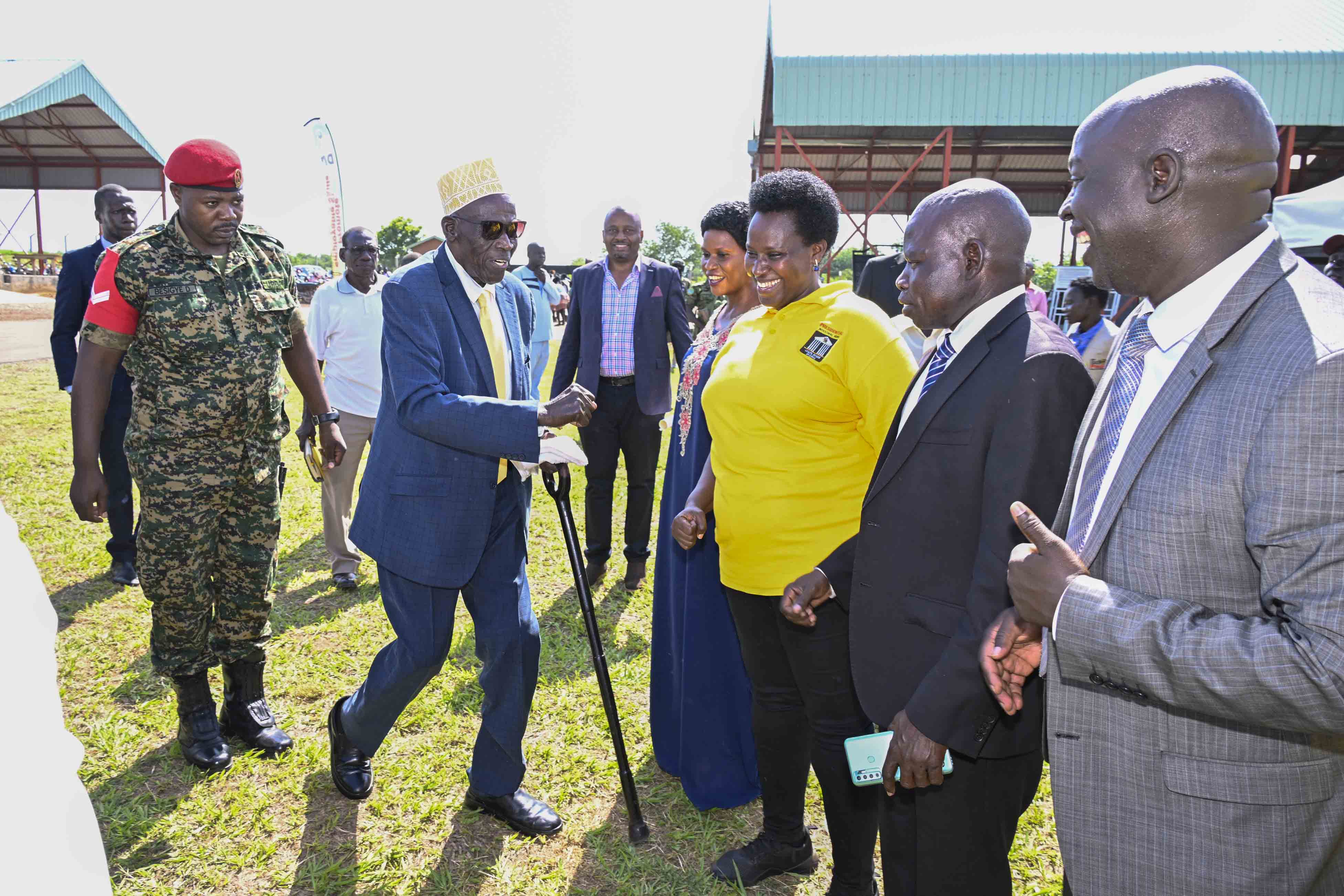Asiimire: Using a Mortgage to build your wealth and the drawbacks
BY ASIIMIRE ISABEL
The hustle for money and wealth is one big challenging story, one needs money to make money! People have resorted to all sorts of ventures to make money including but not limited to selling their possessions, securing credit facilities and sometimes obtaining it through unlawful means like theft and robbery.
Securing credit facilities from financial institutions through mortgages is however one of the commonest legal means of money acquisition. The unfortunate bit about this is that it is usually only available to those that have already acquired an asset or two either through purchase, inheritance or otherwise, to be pledged as a security.
Keep Reading
Mortgages are legally acceptable and are generally governed by The Mortgage Act of 2009 as Amended and likewise, the Mortgage Act provides under section 3(1) that, “a person holding land under any form of land tenure, may, by an instrument in the prescribed form, mortgage his or her interest in the land or a part of it to secure the payment of an existing or a future or a contingent debt or other money or money’s worth or the fulfillment of a condition.” This implies that he who has not land cannot create a mortgage!
 NSSF encourages Ugandans to grow their wealth portfolio through saving schemes
NSSF encourages Ugandans to grow their wealth portfolio through saving schemes
For credit facilities like bank overdrafts or acquisition of credit cards, where no security is required, the borrower must usually qualify as one of those with a high and promising banking history and threshold such that the financial institution is comfortable enough to trust the borrower to pay back the advanced credit without worry that the borrower may default. This option is not available to the common Ugandan locally known as “omuntu wa wansi”.
Most people with no assets will usually resort to means like community based money lending groups like Saccos which sometimes lend to members solely premised on trust and mutual agreement with the hope that the money will be repaid for use by other members. These have in fact become the new order of the day. They are present in both rural and urban settings with names such as “Investment clubs (in the urban areas)” and the “kafunas or bigombe (in the rural areas)”.
 Construction site crane building a blue 3D word. Part of a series.
Construction site crane building a blue 3D word. Part of a series.
The word Mortgage is a legal term captured by the said act to includes “any charge or lien over land or any estate or interest in land in Uganda for securing the payment of an existing or future or a contingent debt or other money or money’s worth or the performance of an obligation and includes a second or subsequent mortgage, a third party mortgage and a sub mortgage;”
The simple understanding is that a mortgage is created when a borrower (mortgagor) pledges his/her land to the lender (mortgagee) which is usually a financial institution as a promise to pay back a sum of money advanced to the borrower by the lender. Please note that mortgages can also be created over other assets such as motor vehicles and other property/chattels owned by the borrower and these are referred to as Chattel Mortgages and they are governed by The Chattel Securities Act of 2014.
A mortgage maybe a second or subsequent mortgage, a third mortgage, a sub mortgage and a third party mortgage. The second or subsequent mortgage is created when the mortgagor secures two credit facilities (loans) on the same land there by creating a second or subsequent mortgage while a sub mortgage is when a mortgagor creates a mortgage on an already existing mortgage.
On the other hand, a third party mortgage is when a person mortgages his land so that a third party or another person can acquire the credit facility. For instance when a mother mortgages her land so that her son can acquire a loan from a bank that mortgage that is created is called a third party mortgage.

The biggest challenge with mortgages arises when the mortgagor defaults on the loan payment and the bank wants to foreclose/sell or liquidate the security/land so as the recover its lent moneys. Most mortgagors will not let go easily.
The law was crafted in such a way that is protects the mortgagors’ ownership. This is the maxim that, “once a mortgage always a mortgage”. This implies that at the mortgage will forever be the mortgagor’s property at whatever time as long as he pays off the mortgage despite the fact that the period of payment has lapsed.
What happens usually is that, once the mortgagor has not complied with the loan repayment schedule, and the time of payment has lapsed, the bank proceeds to exercise its right to foreclose to recover its money but the mortgagor is not willing to let the land go. So a series of bargain will commence between the bank and the borrower as the later pleads for more time to pay up the outstanding money.
The bank rarely heeds to the mortgagors requests and proceeds to sell. At that point the bank’s actions will be legal. But the bank has not right to sell the mortgagor’s land if he pays up the money no matter how much time has passed after the mortgagor’s default to pay the loan in the scheduled time. If the bank proceeds to sell after the payment is made, it would be an illegal sale and the mortgagor would legally challenge the sale.
Reality is that, the mortgagor is usually not in position to clear the outstanding loan and even when he/she promises to make payment, the bank has no assurance of such promise hence it forecloses.
Ugandans have since held a grip on an opportunity to explore when obtaining mortgages. It is a requirement of the law that before a person can obtain a loan, their spouse must consent to the mortgage. Section 5 of the Mortgage Act states that, “Notwithstanding section 39 of the Land Act, a mortgage of a matrimonial home, including mortgage on customary land of a matrimonial home is valid if any document or form used in applying for the mortgage is signed by or there is evidence from the document that it has been assented to by the mortgagor and the spouse or spouses of the mortgagor living in that matrimonial home.” In the absence of the consent, the mortgage is illegal and can be challenged.

To evade foreclosure, lately the mortgagor deliberately refuses to declare that he/she is married or collude with their spouse not to disclose their marital status and they proceed obtain the loan without the spousal consent. When they fail to pay the loan, the mortgagor then asks the spouse to challenge the mortgage and ask court to declare the mortgage illegal for lack of spousal consent so as to redeem their land.
In a recent case of Beatrice Nampinga Vs Hamwe Investments Ltd & Ors Civil Suit Number 149 Of 2014 at the Chief Magistrates Court of Nakawa, The court ruled that the mortgage was illegal for lack of spousal consent and ordered the defendants (including the mortgagee) to hand over the title back to the registered proprietor and explore other options to obtain their moneys.
Since it is hard or almost impossible for the mortgagee to prove the collusion between the mortgagor and his/her spouse the mortgagee usually ends up shouldering the loss and put at the expense of taking alternative means to secure their money.
The mortgagees/banks ought to take serious precaution and due diligence as a requirement of the law under Section 5 (2a) of the Mortgage Act to establish the true marital status of intending borrowers to avoid such circumstances. Where the borrower deliberately withholds or does not declare their marital status, this should be interpreted as fraud by the mortgagor and hence sanctioned.
Further, some mortgagees deliberately choose to be elusive when sought for payment of loan moneys so as to foreclose on the borrowers land and sell it due to ill motives especially when the land value is very high, or when they have a desire to own the land themselves at the detriment of the borrowers who will usually have lesser chances of regaining their land even if they proceeded to court.
This is the also the reason why most mortgagees will not a grant any grace period to the borrower after the loan repayment period lapses, they will immediately exercise their right to foreclose so as to deny the mortgagor opportunity to pay the money.
In conclusion, banks ought to be more careful when granting loans premised on mortgages to people since the mortgagors have become shrewd. The banks ought to exercise their rights while observing the mortgagor’s rights to their land and always keep in mind that “once a mortgage, always a mortgage”.
THE AUTHOR ASIIMIRE ISABEL IS AN ASSOCIATE AT PACE ADVOCATES













